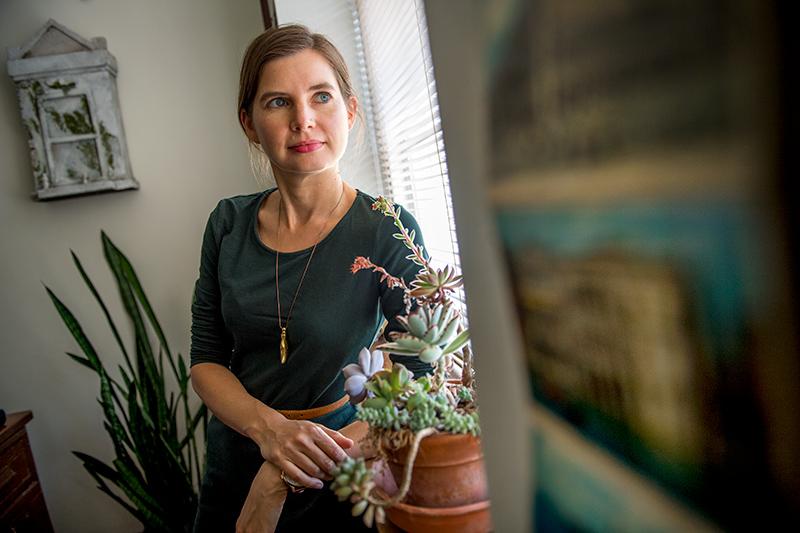Award-winning archaeologist pens book on Roman tombs
As the winner of two prestigious academic honors, the Rome Prize offered by the American Academy in Rome and an American Council of Learned Societies (ACLS) fellowship, archaeologist Allison Emmerson was recognized for her efforts to shed new light on the formation of suburbs in ancient Rome.
“It’s a great honor, as it’s been a dream of mine for a long time,” said Emmerson, an assistant professor of classical studies in the School of Liberal Arts.
Twenty-nine artists and scholars were selected for the prize through an annual national competition and were honored during the Arthur and Janet C. Ross Rome Prize Ceremony in New York on April 12.
As an honoree, Emmerson receives a stipend to travel to Rome to pursue her research during the 2018–19 academic year at the American Academy’s 11-acre campus — the oldest American overseas center for independent study and advanced research in the arts and humanities.
“What’s interesting about the Rome Prize is that you’re living in a community with many different scholars, artists and architects — people working on different projects but all in unity,” she added.
Emmerson plans to spend her time in Rome finishing her upcoming book, which will analyze how tombs were a central feature of suburbs within the ancient Roman world.
“The book specifically explains how the dead fit into a living urban landscape, delving into how tombs and spaces for the dead interact with other parts of the city,” she said.
This September, Emmerson will also start her fellowship with ACLS, a nonprofit federation of 75 national scholarly organizations that collaborate to advance American scholarship in humanities and social sciences.
Emmerson says that she’s grateful for opportunities provided by the fellowship, as it’ll allow her to concentrate on finishing her book while also participating in interdisciplinary dialogue with other fellows.
“Academic work is often solitary, so this is a unique opportunity,” she said. “It’s going to open up new opportunities and new ways of thinking about the project. That’s the most exciting part.”

